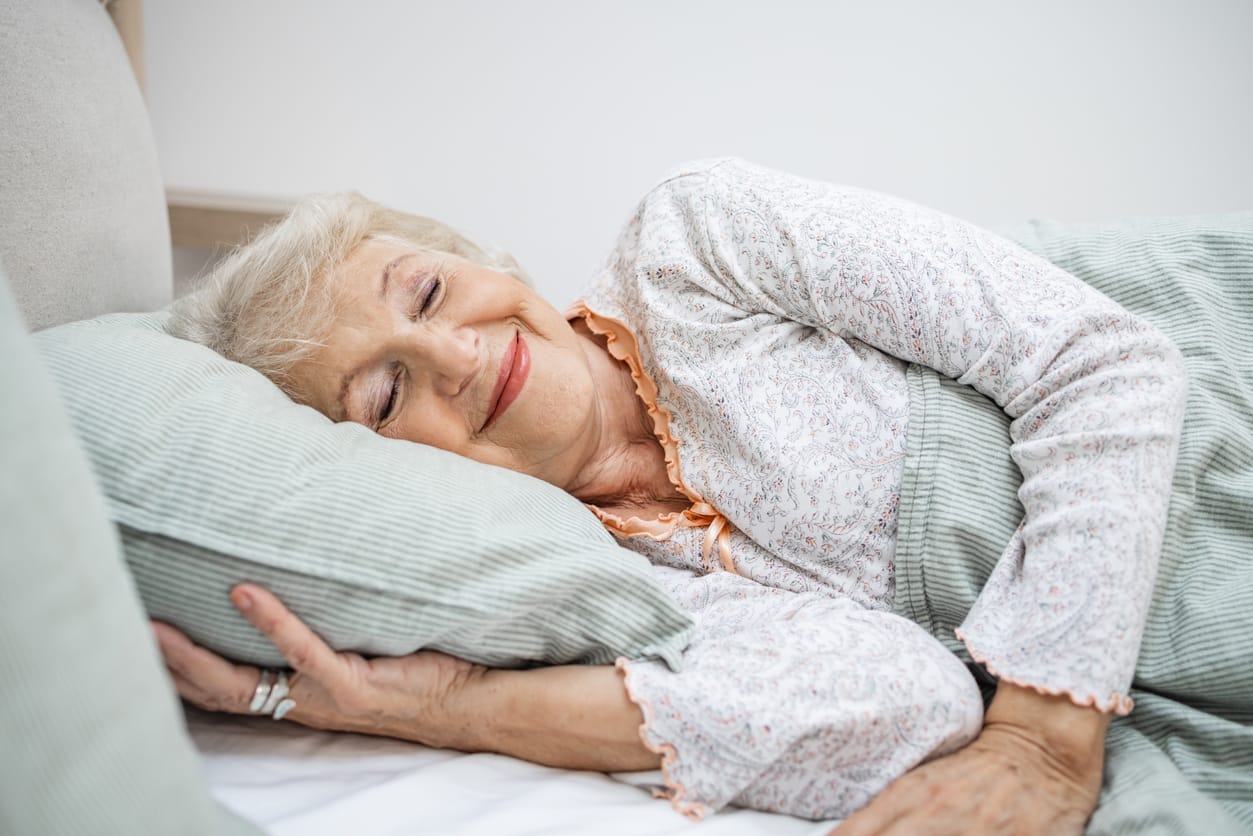In the quiet hours of the night, caregivers of elderly loved ones often find themselves immersed in a delicate dance with sleep—a dance fraught with challenges and profound significance. For seniors, sleep is not merely a biological necessity but a cornerstone of health and well-being. As caregivers, we bear witness to the intricacies of this relationship, navigating through common sleep issues that shape our daily routines and define our caregiving journey. Through personal anecdotes and insights, we explore the pivotal role of sleep in senior care, highlighting its transformative power and the enduring bonds it fosters between us and those we cherish.
Understanding Sleep Changes in Seniors
As family caregivers, we navigate a complex landscape of sleep changes in our elderly loved ones, where each night unfolds with its own challenges and rewards. Aging brings about significant shifts in sleep patterns, altering the way our seniors experience rest and rejuvenation. Understanding these changes is crucial for providing compassionate and effective care.
Explanation of How Sleep Patterns Change with Age
As our senior loved ones age, their sleep naturally undergoes changes. According to research from the Sleep Foundation, older adults often experience lighter sleep and more frequent awakenings during the night, which can make their sleep feel less deep. Many seniors also tend to wake up earlier in the morning due to shifts in their body's natural sleep-wake cycle. While adults typically need 7-9 hours of sleep, some older individuals may find they function well with slightly less, around 7-8 hours. It's important to recognize that individual sleep needs can vary based on factors like health, activity levels, and medications. If you're concerned about your senior loved one's sleep, discussing it with their doctor can help identify any underlying issues and explore strategies to enhance their sleep quality.
Overview of Common Sleep Disorders Among Seniors:
Understanding the diverse landscape of sleep disorders among seniors is essential for effective caregiving. These disorders significantly impact their sleep quality and overall well-being, necessitating tailored approaches to support their restorative rest.
- Insomnia: Seniors frequently experience insomnia, characterized by difficulty falling asleep, staying asleep, or waking up too early. It can stem from various factors such as anxiety, medication side effects, or underlying health conditions.
- Sleep Apnea: This condition involves pauses in breathing during sleep, often accompanied by loud snoring and daytime fatigue. Untreated sleep apnea can lead to serious health complications, affecting both sleep quality and overall health.
- Restless Leg Syndrome (RLS): Seniors with RLS experience an irresistible urge to move their legs due to discomfort or tingling sensations, which can disrupt sleep onset and lead to frequent leg movements during the night.
- Periodic Limb Movement Disorder (PLMD): Characterized by repetitive movements of the legs or arms during sleep, PLMD can cause arousal and fragment sleep, often coexisting with other sleep disorders like insomnia or sleep apnea.
- Circadian Rhythm Disorders: Conditions such as advanced sleep phase disorder or delayed sleep phase disorder disrupt seniors' sleep-wake cycles, leading to mismatched sleep patterns with societal norms and impacting daily functioning. Understanding these disorders empowers caregivers to provide targeted support for improving sleep outcomes in elderly loved ones.
Discussion on the Impact of Medications and Underlying Health Conditions
The impact of medications and underlying health conditions cannot be overstated in understanding sleep challenges among seniors. Many medications prescribed for chronic conditions can affect sleep quality, either by inducing drowsiness during the day or causing insomnia at night. Moreover, underlying health issues such as arthritis, heart disease, and neurodegenerative disorders may exacerbate sleep disturbances, necessitating a comprehensive approach to caregiving that considers both medical and lifestyle interventions.
Essential Sleep Tips for Seniors
Promoting restful and rejuvenating sleep is crucial for the overall well-being of our elderly loved ones. Here are practical tips to help optimize their sleep environment and routines:
- Create a Comfortable Sleep Environment: To enhance comfort, ensure the bedroom is conducive to sleep. Choose supportive bedding and pillows that promote relaxation. Control room temperature to a comfortable level and minimize noise and light disruptions that can disturb sleep.
- Establish a Consistent Sleep Routine: Consistency is key to improving sleep quality. Encourage a regular sleep schedule, including consistent bedtime and wake-up times. Engage in calming pre-sleep activities such as reading or gentle stretching, which can help seniors unwind and prepare for rest.
- Diet and Exercise: Diet plays a significant role in sleep quality. Recommend avoiding heavy meals, caffeine, and spicy foods close to bedtime, as they can interfere with sleep. Encourage a balanced diet that supports overall health and promotes restful sleep. Additionally, gentle exercises like walking or yoga can be beneficial. Assist seniors in participating in these activities to ensure they are safe and enjoyable.
Implementing these practical tips can significantly contribute to improving the sleep quality of elderly loved ones, fostering better sleep habits and enhancing their overall quality of life.
Role of Caregivers in Managing Sleep Hygiene
Fostering good sleep hygiene for our elderly loved ones involves several key strategies. Here's how to maintain optimal sleep habits and address nighttime challenges with sensitivity and effectiveness:
Strategies to Maintain Sleep Hygiene
Carefully curate the sleep environment to promote comfort and relaxation. Ensure the bedroom is conducive to sleep with comfortable bedding, appropriate room temperature, and minimal noise and light disturbances. Establish a consistent bedtime routine that includes calming activities like reading or gentle music to signal relaxation before sleep.
Tips for Handling Nighttime Awakenings
Approach nighttime awakenings with patience and reassurance. Provide gentle support to help seniors return to sleep, such as offering a comforting presence or a glass of water if needed. Avoid stimulating activities or bright lights that could disrupt their ability to fall back asleep.
Signs of Serious Sleep Issues
Be attentive to signs that indicate more serious sleep disorders, such as chronic insomnia, frequent nightmares, or excessive daytime sleepiness. Note changes in mood or behavior that may suggest underlying sleep disturbances. If these signs persist or worsen, consult with healthcare professionals for a thorough assessment and appropriate intervention.
The Impact of Mental and Emotional Health on Sleep
Emotional challenges like depression and anxiety can significantly disrupt sleep patterns in seniors. These conditions often lead to difficulty falling asleep, frequent awakenings during the night, or early morning awakenings. Addressing these issues with compassion and understanding is essential for improving sleep quality.
Caregivers play a pivotal role in helping seniors manage stress and promote relaxation before bedtime. Encourage soothing activities such as gentle stretching, reading a favorite book, or listening to calming music to unwind. Ensure opportunities for social interaction earlier in the day to reduce feelings of loneliness or isolation, which can impact nighttime rest.
Navigating Sleep Aids and Medications
- Overview of Common Sleep Aids: Seniors may consider both over-the-counter and prescription sleep aids to manage sleep difficulties. Common options include melatonin supplements, antihistamines like diphenhydramine, and prescription medications such as benzodiazepines or non-benzodiazepine hypnotics. Each type varies in effectiveness and suitability depending on individual health conditions and preferences.
- Potential Side Effects and Risks: It’s essential to be aware of potential side effects and risks associated with sleep medications. These can range from dizziness, drowsiness, and confusion to more serious concerns like dependency or interactions with other medications. Careful consideration and consultation with healthcare providers are necessary to mitigate these risks.
- Tips for Consulting Healthcare Providers: When discussing sleep aid options with healthcare providers, caregivers should provide comprehensive information about the senior’s medical history, current medications, and sleep patterns. Collaborate closely to develop a safe and effective treatment plan, including proper dosage and timing. Regularly review and adjust medication schedules as needed to optimize sleep quality while minimizing risks.





